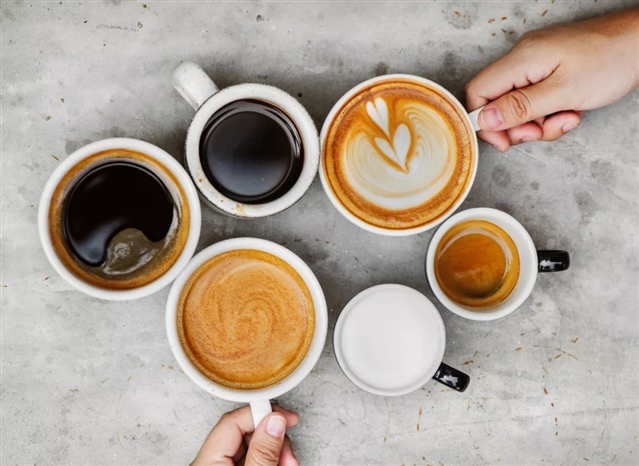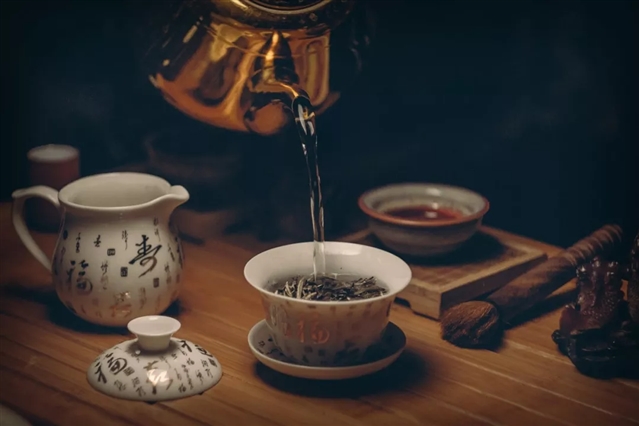论文标题:Understanding the role of bitter taste perception in cofee, tea and alcohol consumption through Mendelian randomization
期刊:Scientific Reports
作者:Jue-Sheng Ong, Daniel Liang-Dar Hwang, Victor W. Zhong, Jiyuan An, Puya Gharahkhani, Paul A. S. Breslin, Margaret J. Wright, Deborah A. Lawlor, John Whitfield, Stuart MacGregor, Nicholas G. Martin, Marilyn C. Cornelis
发表时间:2018/11/15
数字识别码: 10.1038/s41598-018-34713-z
原文链接:https://www.nature.com/articles/s41598-018-34713-z?utm_source=other&utm_medium=other&utm_content=null&utm_campaign=JRCN_2_RL_linkresearch_article_10.1038_s41598-018-34713-z&error=cookies_not_supported&code=53d55433-b08e-45d3-98ef-4b46e9a18d74
微信链接:https://mp.weixin.qq.com/s/DLb4h-RknvWSbOyyZOD4cA
《科学报告》发表的一项研究Understanding the role of bitter taste perception in cofee, tea and alcohol consumption through Mendelian randomization指出,人们对苦味物质的感知与拥有某组特定基因有关,这种感知会影响他们对咖啡、茶或酒精的偏好。

图源:Pexels
澳大利亚昆士兰医学研究所(QIMR Berghofer)的Jue-Sheng Ong、昆士兰大学迪亚曼蒂纳研究所的Liang-Dar Hwang及同事运用英国生物样本库(UK Biobank)中40多万名参与者的样本,通过分析与丙硫氧嘧啶[PROP]、奎宁和咖啡因这三种苦味物质的感知有关的基因变异,评估了苦味感知对咖啡、茶和酒精摄入的影响。
研究人员发现,对咖啡因苦味敏感度较高(由特定基因决定)与咖啡摄入较多有关,而对PROP和奎宁味道敏感度较高则与咖啡摄入较少有关。对咖啡因苦味敏感度较高的人,更有可能成为重度咖啡饮用者。而对茶的摄入则相反,对PROP和奎宁敏感度越高,茶摄入越多,但对咖啡因敏感度越高茶摄入越少。对酒精来说,对PROP的感知较强会导致酒精摄入减少,而对其它两类化合物的感知较强则不具有明显影响。

图源:Pexels
这些研究结果显示,基因差异导致的苦味感知差异或许能解释为何有些人喜欢喝咖啡而有些人喜欢喝茶。
摘要:Consumption of coffee, tea and alcohol might be shaped by individual differences in bitter taste perception but inconsistent observational findings provide little insight regarding causality. We conducted Mendelian randomization analyses using genetic variants associated with the perception of bitter substances (rs1726866 for propylthiouracil [PROP], rs10772420 for quinine and rs2597979 for caffeine) to evaluate the intake of coffee, tea and alcohol among up to 438,870 UK Biobank participants. A standard deviation (SD) higher in genetically predicted bitterness of caffeine was associated with increased coffee intake (0.146 [95%CI: 0.103, 0.189] cups/day), whereas a SD higher in those of PROP and quinine was associated with decreased coffee intake (−0.021 [−0.031, −0.011] and −0.081 [−0.108, −0.054] cups/day respectively). Higher caffeine perception was also associated with increased risk of being a heavy (>4 cups/day) coffee drinker (OR 1.207 [1.126, 1.294]). Opposite pattern of associations was observed for tea possibly due to the inverse relationship between both beverages. Alcohol intake was only negatively associated with PROP perception (−0.141 [−1.88, −0.94] times/month per SD increase in PROP bitterness). Our results reveal that bitter perception is causally associated with intake of coffee, tea and alcohol, suggesting a role of bitter taste in the development of bitter beverage consumption.
阅读论文全文请访问:https://www.nature.com/articles/s41598-018-34713-z?utm_source=other&utm_medium=other&utm_content=null&utm_campaign=JRCN_2_RL_linkresearch_article_10.1038_s41598-018-34713-z&error=cookies_not_supported&code=53d55433-b08e-45d3-98ef-4b46e9a18d74
期刊介绍:Scientific Reports(https://www.nature.com/srep/) is an online, open access journal from the publishers of Nature. We publish scientifically valid primary research from all areas of the natural and clinical sciences.
The 2017 journal metrics for Scientific Reports are as follows:
•2-year impact factor: 4.122
•5-year impact factor: 4.609
•Immediacy index: 0.576
•Eigenfactor® score: 0.71896
•Article Influence Score: 1.356
•2-year Median: 2
(来源:科学网)
特别声明:本文转载仅仅是出于传播信息的需要,并不意味着代表本网站观点或证实其内容的真实性;如其他媒体、网站或个人从本网站转载使用,须保留本网站注明的“来源”,并自负版权等法律责任;作者如果不希望被转载或者联系转载稿费等事宜,请与我们接洽。